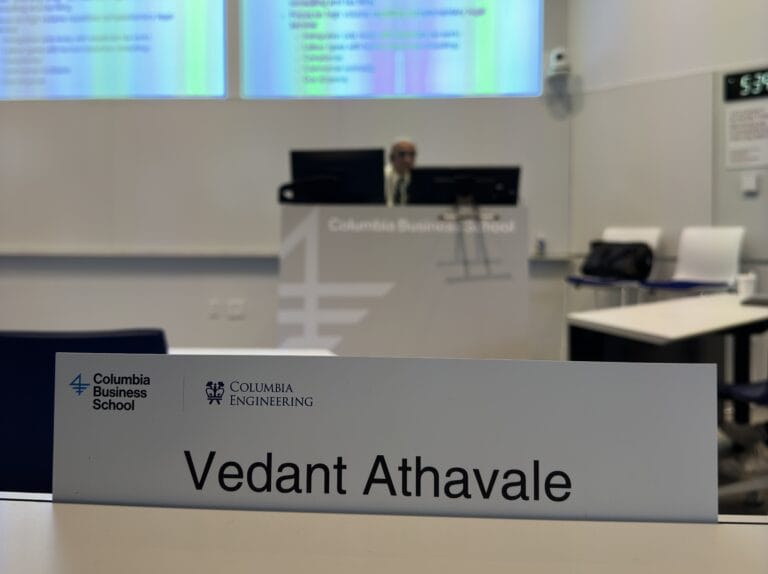
From Mumbai to Morningside Heights – A Cultural and Academic Shift
When I landed in New York, I was stepping into a whole new world. Unlike many of my peers, I never had a grand, romanticized vision of New York City based on movies or books. I chose Columbia for its academic rigor and career opportunities, but I quickly realized that the city itself was just as much a part of my education as the university.
My first few days were spent exploring, Staten Island Ferry, the Times Square, the Brooklyn Bridge, The U.S. Open at Arthur Ashe and Central Park. The excitement was palpable, but so was the overwhelming reality of starting a new in a completely foreign place. Coming from Mumbai, a city that thrives on chaos and ambition, I found many similarities in NYC’s fast-paced rhythm. However, the self-reliance demanded by New York was unlike anything I had ever experienced.
VJTI vs Columbia – What Each Can Learn from the Other
My transition from VJTI Mumbai, one of India’s most prestigious engineering institutions, to Columbia was eye-opening. VJTI thrives on peer learning and self-reliance due to limited structured faculty engagement, being one of the oldest government institution. While Columbia offers unmatched academic and professional resources, VJTI fosters a survival-driven work ethic that pushes students to solve problems on their own.
Columbia could learn from VJTI’s placement and how jobs are offered haha, while VJTI could benefit from structured mentorship, industry integration, and hands-on learning, something Columbia excels at.
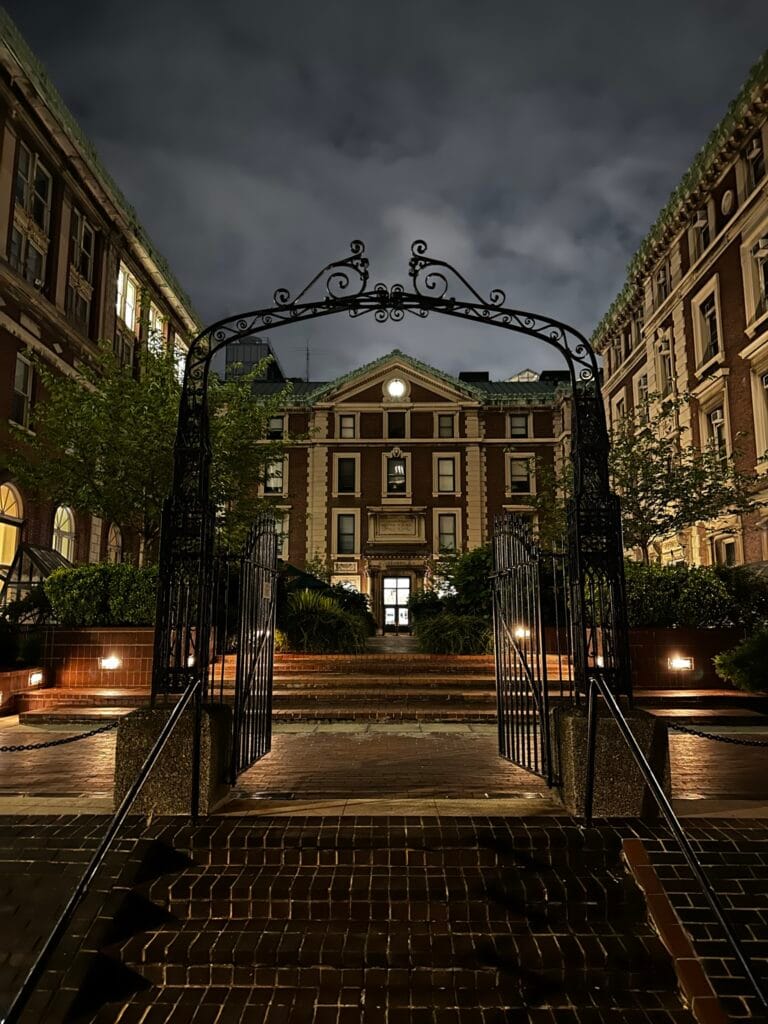
The Columbia Shock – World-Class Learning and Exposure
Columbia’s academic rigor was a wake-up call. My coursework in the first semester was a deep dive into structured problem-solving:
Optimization Methods – Decision-making models for complex problems.
Probability, Statistics and Simulation – Analyzing and modeling real-world systems to predict outcomes.
Service Operations Management – A Columbia Business School course that challenged my reasoning and decision-making like never before.
Each professor at Columbia brought industry expertise beyond academia:
My Probability & Statistics professor? An MMA fighter whose discipline extended from the ring to the classroom.
My Operations Consulting professor? Knighted by the King of Morocco, leading projects with Louis Vuitton, Gucci, EY-Parthenon, and more.
Medini Singh, a Columbia Business School legend? His Service Operations Management and Operations Strategy courses redefined the way I approached logic.
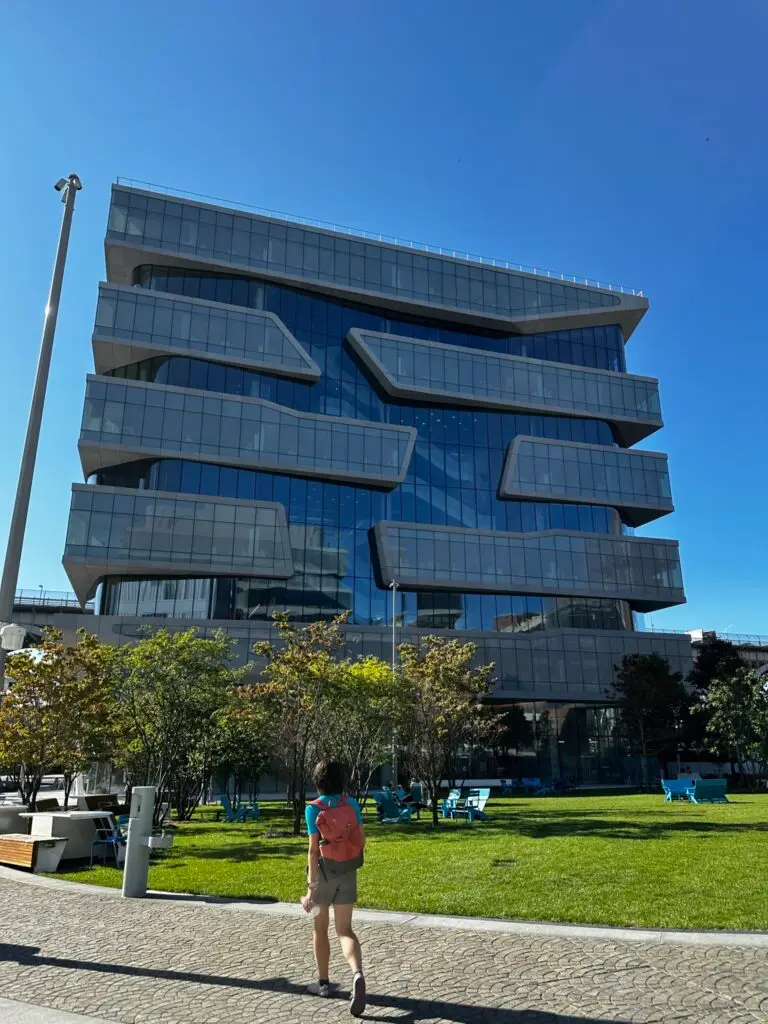
The peer quality at Columbia was another level altogether. Sitting next to MBA students, seasoned professionals, and industry leaders forces you to sharpen your thinking and decision-making every single day.
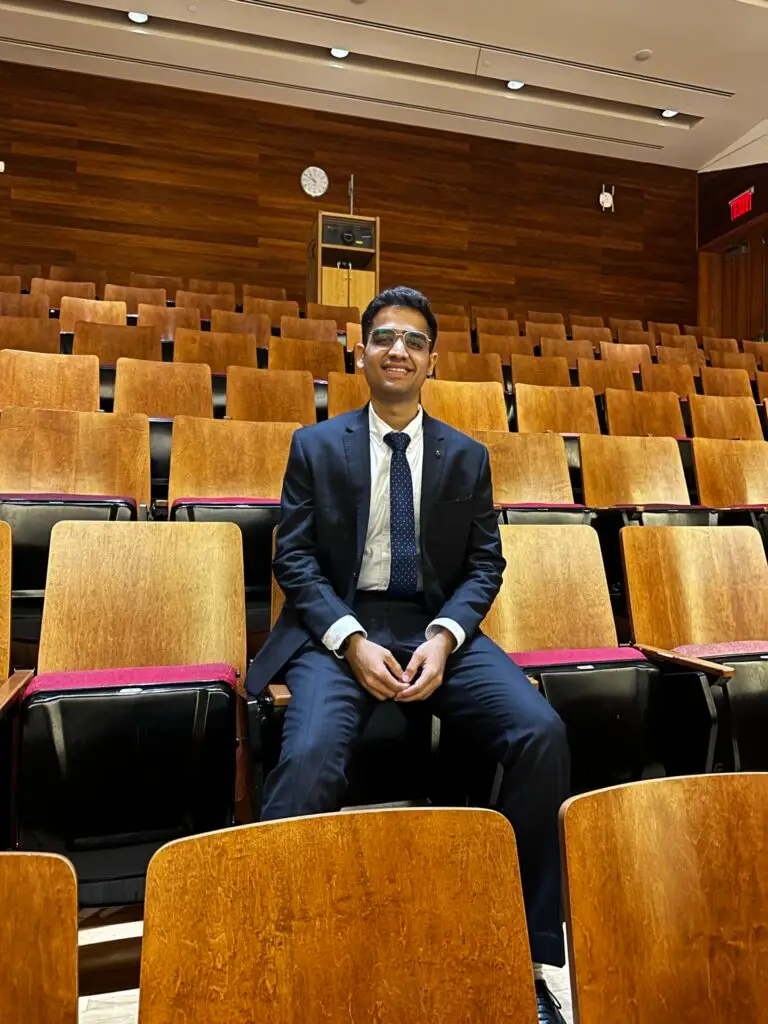
The Hustle – Operations Consulting: A Real-World Experience
One of the most intense experiences of my first semester was the Operations Consulting course. Unlike traditional case-study classes, this was a full simulation of consulting life.
Getting a client wasn’t a simple assignment—it was a battlefield. Imagine sitting in a room full of ambitious students, all competing to secure projects with top-tier companies. The process stretched late into the night, sometimes from 2 PM to 1 AM, as we strategized, negotiated, and refined our pitches.
The most emotional moment of my Columbia journey was the night my Operations Consulting course ended. My teammates and I stood near Alma Mater, taking pictures and reflecting on the incredible journey that was going to start. I looked at Alma Mater, glowing in the night sky. I already knew then that graduation day would be emotional.
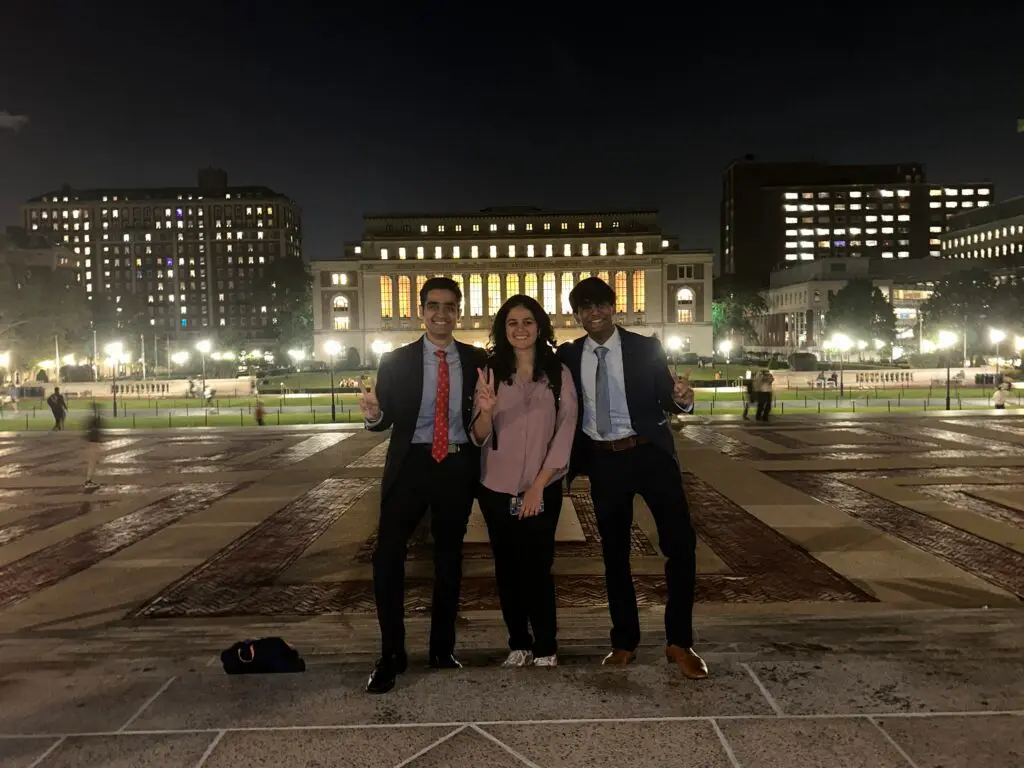
Who are these so called experts talking about Columbia?
Many people claim Columbia isn’t strong in product management, but my experience says otherwise. The university offers an unparalleled ecosystem:
A mix of pricing, behavioral economics, and digital product management courses.
Cross-disciplinary learning from the Business School and Engineering programs.
Hands-on projects, like working with Dell in the Digital Product Management course, led by a former VP of Product at Google.
This project gave me invaluable experience in:
1. Collaborating with cross-functional teams.
2. Developing a product roadmap and strategy.
3. Understanding how large-scale companies operate from a PM’s perspective.
For those who think Columbia isn’t a PM school, talk to the students actually studying here.
Balancing Academics, Networking, and Personal Growth
Columbia’s rigor was demanding, but I ensured that I didn’t let networking and personal experiences take a back seat.
I attended major conferences, networking events, and meetups, engaging with leaders across industries. Despite a packed academic schedule, I made time for exploring NYC, taking road trips, and keeping up with personal commitments.
A key lesson? Your academic journey is deeply impacted by your personal experiences. But learning how to balance everything is a skill in itself.
The Internship Search – A Summer of Choices
The job market was brutal, but networking and persistence paid off. I received interview calls from:
SiriusXM
Pfizer
JP Morgan Chase
Multiple startups across California, Florida, New York, and Boston
I secured an internship in product operations in Florida but ultimately chose not to take it. It was a difficult decision to take, but I took the most unconventional decision. Instead, I focused on a personal initiative, something I’m still building. Those three months were spent networking, attending conferences, and building relationships, which have since helped me in my career.
Lesson learned? Your resume won’t get you a job or funding—your network will.
Full-Time Success for Columbia’s Graduates
Despite the tough job market, my classmates from Columbia’s MS&E program have secured full-time roles at some of the biggest companies:
DoorDash
Lenovo
Scale AI
Splunk
Juniper Networks
- Many other SMEs and startups like Armada, Niagara Bottling, and startups in Clean Energy Investments, etc.
Inside scoop? I know 17/34 Indians in my batch have joined full-time with these companies as of Feb 10, 2025 (Less than 2 Months after Graduation). The rest of the class already has over 70% placement rate. I am still one of those searching for a job, but I hope destiny has some good things ahead for me!
The Final Moment – Standing at Alma Mater
“I hope life brings me back to this Alma Mater. I hope I get the chance to learn at Columbia again.” Because this journey, this experience, has been nothing short of extraordinary.
What Should You Do?
For future students, here’s my advice:
Make the most of networking opportunities—your connections will shape your career.
Take courses that push you intellectually—you’ll leave Columbia or whichever college you choose sharper and more adaptable.
Explore NYC/your college town or city and balance academics with experiences—your time here is more than just textbooks and exams.
Embrace both success and struggle—they are both part of the learning process.
Columbia didn’t just educate me—it transformed me. And one thing is certain:
If life ever gives me the chance to return to Columbia, I won’t think twice. I’ll be back.
For anyone considering Columbia: You will be pushed beyond your limits. You will be forced to evolve. And when you leave, you won’t just have a degree, you’ll have a whole new perspective on learning, business, and personal growth. Want to Connect? 📩 [email protected] or comment below with your questions.
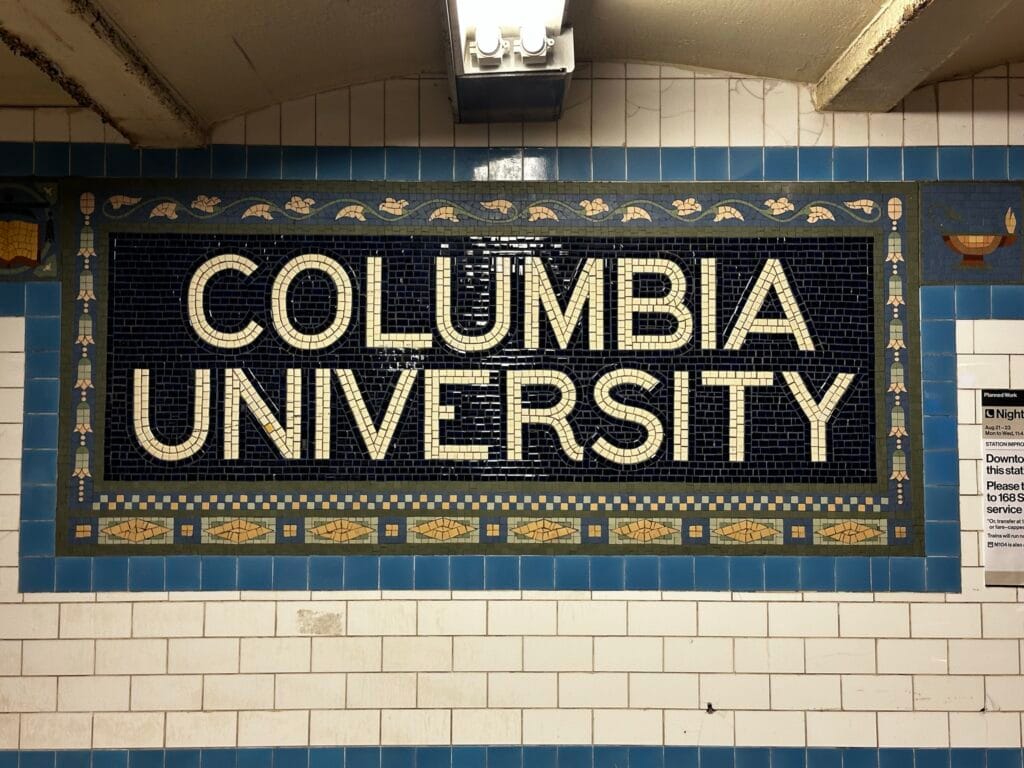

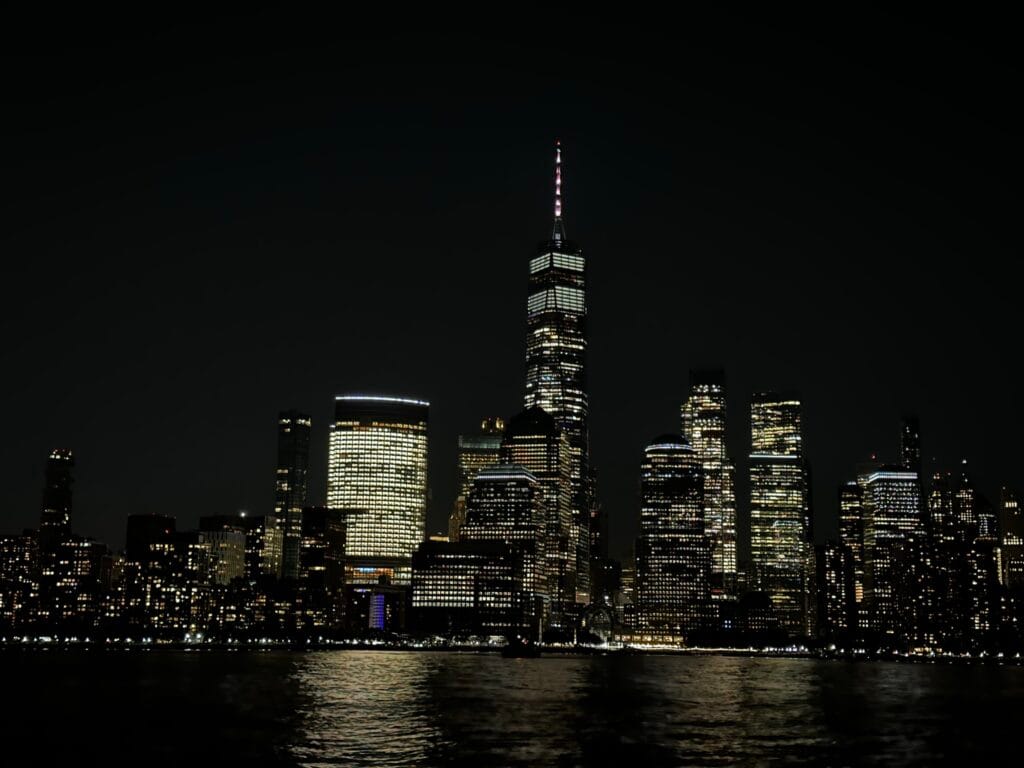
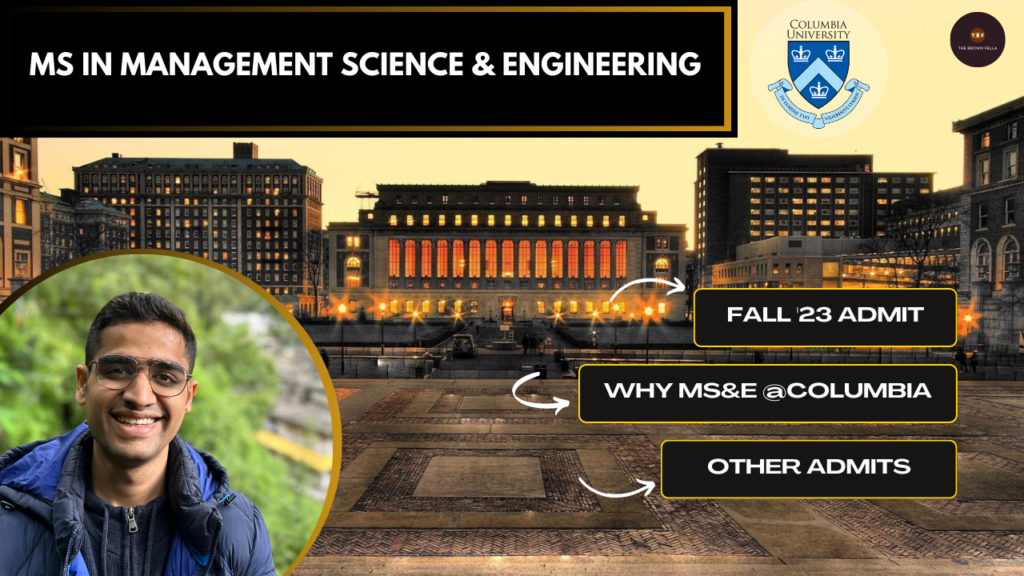
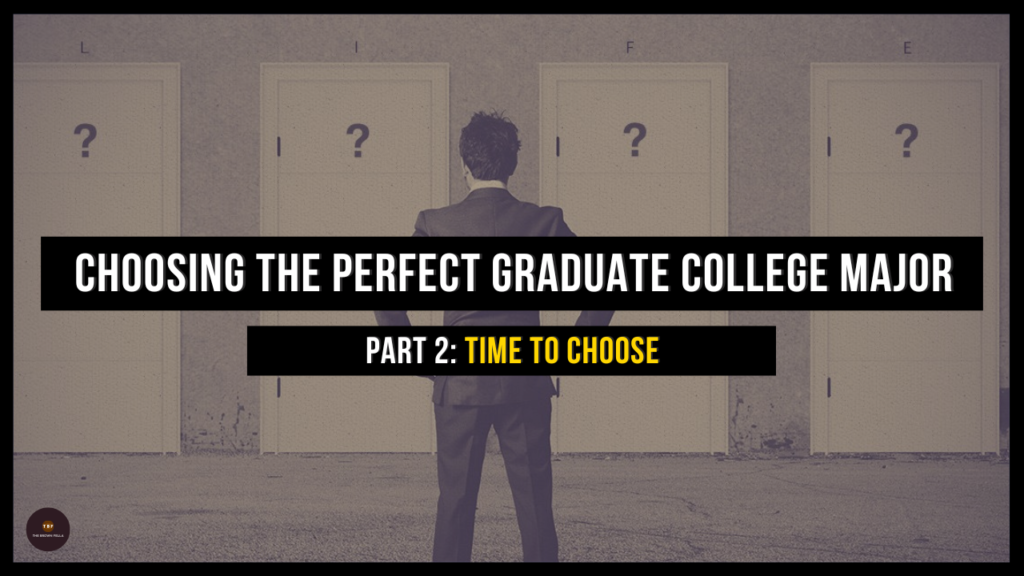

Forever Grateful to Columbia! <3
Make the best of your time here!
Awesome narrative! Feels like I should join Columbia too. But until next time…
Haha, thanks! For a PhD?
Hey there You have done a fantastic job I will certainly digg it and personally recommend to my friends Im confident theyll be benefited from this site
MB6668, heard through the grapevine it was worth a look. I was pleasantly surprised. Good selection of games to choose from. Check it out at mb6668. You might have a good time.
ninogamingcasino is a fun place to spend some time after a long day They have a lot of options and it looks pretty well designed Give it a shot ninogamingcasino
Okay, so hot646ph…it appears to be a specific angle of hot646 for the Philippines? If you’re local, it might be the right spot to log in from hot646ph.
SabongBet’s calling my name! Just deposited a bit. Hoping to multiply it tonight! Here’s the site where I do my betting sabongbet.